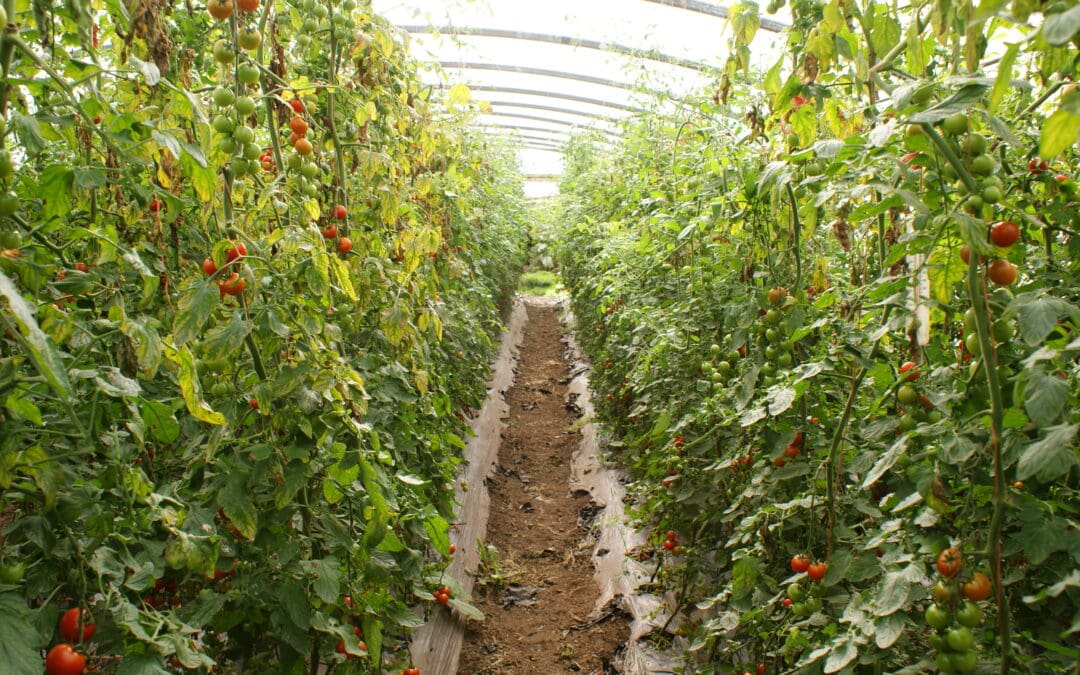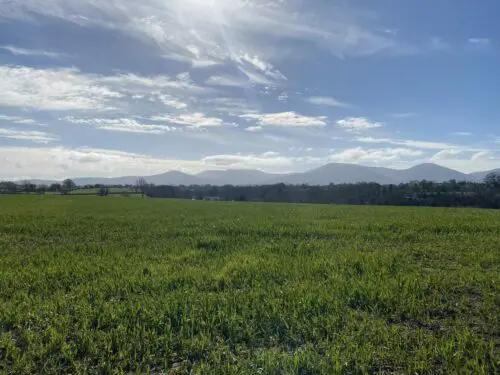CAP Network Ireland attended the Energy & Farm Diversification Show at Gurteen College on the 18th of July. The Show explored innovative approaches to sustainable agriculture through demonstrations, trade show exhibitors, and discussion.
The Show was organised by Teagasc, Tipperary County Council, Technological University of the Shannon, and Macra na Feirme, with an aim to assist rural entrepreneurs in diversifying into energy, food, and agri-tourism through peer-to-peer learning, demonstrations and informative panel discussions. There was a mix of stakeholders present including industry (e.g., bioeconomy companies and farm machinery manufacturers), Teagasc representatives, National Organic Training Skillnet (NOTS), civil society actors (including Department of Agriculture, Food and the Marine), cooperatives (such as Tirlan), and attending farmers and non-farmer citizens. The event featured a mix of panel discussions (ranging from climate change adaptation in agriculture to renewable energy generation on farms), as well as demonstrations on forestry, solar, organics, anaerobic digestion, biomass, and hydropower. There were also trade show stalls for marketing, information and knowledge sharing.
The key takeaways were the encouragement, support and guidance for farmers and the farming sector to improve on energy efficiency, diversify into renewable energy generation and biogas and to manage adaptation to climate change and land use pressure. Topics that continuously emerged throughout the day included the following:
- The introduction of biomethane infrastructures on a local level.
- The nitrogen derogation’s changes and its potential implications on land use pressure and ecological outcomes.
- Carbon emissions, sequestration, and the pending Carbon Farming Framework, and the reported confusion of such at farm-level.
- Agroforestry and the need for clarity and support structures for integrating trees into farms, acknowledging the historical and current issues with trust in this area.
- The need for more holistic, systems thinking at all levels, including at policy level, to ensure schemes and regulations make practical sense ‘on the ground’, and do not counteract each other.
During the panel discussions, there was a particular focus on how farmers are and will be adapting to changes in climatic conditions. One panel discussion featured input from Pat Dunne, who led the Sustainable Uplands Agriculture-environment Scheme (SUAS) project. Pat provided insights into the practical steps and collaborative efforts adopted in the project, to shape the future of upland farming in a changing climate. He stated the need for long-term rolling support schemes and multi-actor water catchment-based approaches.
The upland regions in Ireland are facing significant sociological challenges in terms barriers of farming succession, and the lack of economic viability of upland farming. Generational renewal is limited by cultural aspects in addition to economic challenges. For instance, Pat described a sense of shame around sheep farming which was revealed by participants in the SUAS project. However, through the innovative multi-actor collaborative method adopted in the project, there was a significant cultural change towards a sense of ownership and pride around upland sheep farming. The withdrawal of farming from these areas has negative consequences for multiple reasons, including the need for management of invasive species (such as purple moor grass, rhododendron, and bracken), and thus it is recommended that the positive impact of upland farmers be recognised and communicated more publicly.
You can learn more about the SUAS project on the project website.
Overall, the tradeshow and demonstrations provided a useful opportunity for farmers to obtain knowledge on various forms of farm diversification / transition (e.g., renewable energy generation, organics, value-added products etc.). While the panel discussions featured interesting speakers and conversations (including a mix of government officials, and representatives of non-governmental organisations, media and industry).
You can find out more about The Energy and Farm Diversification Show here.
Join CAP Network Ireland and stay up to date with the latest news in the agriculture sector by clicking here.
Image source: energyandfarmdiversificationshow.com




